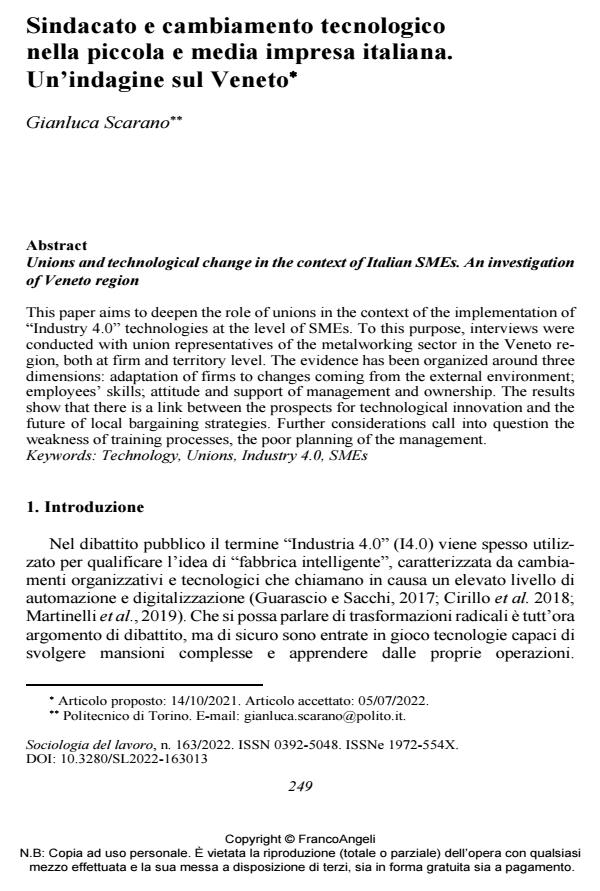Unions and technological change in the context of Italian SMEs. An investigation of Veneto region
Journal title SOCIOLOGIA DEL LAVORO
Author/s Gianluca Scarano
Publishing Year 2022 Issue 2022/163
Language Italian Pages 20 P. 249-268 File size 250 KB
DOI 10.3280/SL2022-163013
DOI is like a bar code for intellectual property: to have more infomation
click here
Below, you can see the article first page
If you want to buy this article in PDF format, you can do it, following the instructions to buy download credits

FrancoAngeli is member of Publishers International Linking Association, Inc (PILA), a not-for-profit association which run the CrossRef service enabling links to and from online scholarly content.
This paper aims to deepen the role of unions in the context of the implementation of "Industry 4.0" technologies at the level of SMEs. To this purpose, interviews were conducted with union representatives of the metalworking sector in the Vene-to region, both at firm and territory level. The evidence has been organized around three dimensions: adaptation of firms to changes coming from the external envi-ronment; employees’ skills; attitude and support of management and ownership. The results show that there is a link between the prospects for technological inno-vation and the future of local bargaining strategies. Further considerations call into question the weakness of training processes, the poor planning of the manage-ment.
Keywords: Technology, Unions, Industry 4.0, SMEs
Gianluca Scarano, Sindacato e cambiamento tecnologico nella piccola e media impresa italiana. Un’indagine sul Veneto in "SOCIOLOGIA DEL LAVORO " 163/2022, pp 249-268, DOI: 10.3280/SL2022-163013